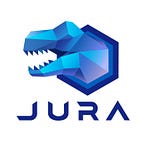Blockchain & Healthcare — Drug Traceability & Data Management
Healthcare is a very difficult and complex industry to innovate. From expensive treatments to on-going research, the healthcare industry is filled with conundrums for tech companies to solve. In this article, we will explore the possible use cases of blockchain that have the potential to disrupt and optimize current healthcare practices.
Use Case # 1: Drug Traceability
Problem
One of the main use cases of blockchain is drug traceability. Drug fraud is a major problem faced by many pharmaceutical companies and, according to the Health Research Funding Organization, around 10% to 30% of drugs sold in the developing world are fake and, it’s the underground economy is valued at around $200 billion annually. According to another report by the World Health Organization, around 16% of the counterfeit drugs contain the wrong ingredients. The main issue with such drugs is not that they’re just fake, but it’s mainly about the wrong ingredients that can put the patient’s life in danger.
How blockchain can help?
The blockchain is useful in keeping track of the entire manufacturing chain of the drug. Each new transactions added to a block is immutable and timestamped which means that the information cannot be tampered with.
Companies can either have a public or a private blockchain. On these blockchains, the companies can have a distributed ledger shared among the parties involved in the manufacturing and distribution of the drug. Moreover, access is only limited depending on information sharing contract between the two parties. Through blockchain, we are able to get the complete trail of the drug. Each time the drug moves from an entity to another, the information is stored on the blockchain which makes it easy to track the drug and wipe off counterfeits from the shelves.
As a result the blockchain technology will help with two main issues: first, it will allow companies to track their products down the supply chain, creating an airtight circuit, impermeable to counterfeit products. Second, it will also allow stakeholders, and especially labs, to take action a posteriori in case of a problem by identifying the exact location of their drugs.
Use Case # 2: Patient Record Management
Problem
Each patient is unique which means that similar patient strategies might not work due to inter-individual variability. Hence, access to complete medical records is essential in order to adapt the treatment and provide personalized care. Sadly, sharing information among the medical community is a major challenge. Even today, when shifting to a new medical facility, similar old tests are re-run and patients get to bear a large amount of cost. Moreover, the lack of a secure structure to share data leads to misuse of patient confidential information.
Also, today the patient cannot claim full-ownership of his medical records because the patient can change information or delete information on it. This could have severe repercussions on both his health and future course of diagnosis. The downside of not sharing is not letting the patients get access to their own data which is again a problem when shifting to a new medical facility.
How can blockchain help?
Blockchain provides a structure for storing data as well as for sharing data: the data is stored on the blockchain and is only accessible via a smart contract (smart contracts are used to manage patient data access)
If required, the patient can share the full details of his medical records to any stakeholders without changing or deleting information. This data can be easily transferred from one medical facility to another without worrying about fraud or misuse. This makes it easier for new doctors to better understand the situation and treat patients accordingly.
Furthermore, medical records are not the only source of data related to a patient. Indeed, as IoT develops, wearables become an important source of information. This type of data could be used in the patient’s interest to track his activity, set goals and adapt treatments. All this can be done through smart contracts. Indeed, the patient and his GP can define the clauses of the contract and set objectives and consequences if the patient succeeds or fails to reach them.
Conclusion
Healthcare is a very underserved industry — there is a lot of data management involved and with blockchain, we can easily optimize the current way of handling data and improve the privacy-flow of patient’s data.
— Jura Protocol
Official homepage — https://jura.network
Official English Telegram — https://t.me/juranetwork
Telegram ANN channel — https://t.me/juranetworkann
Official Twitter — https://twitter.com/JuraProtocol
Official Medium — https://medium.com/@juraprotocol
Official Vietnam Telegram — https://t.me/JuraVietnam
Official Korea Telegram — https://t.me/jurakoreangroup
